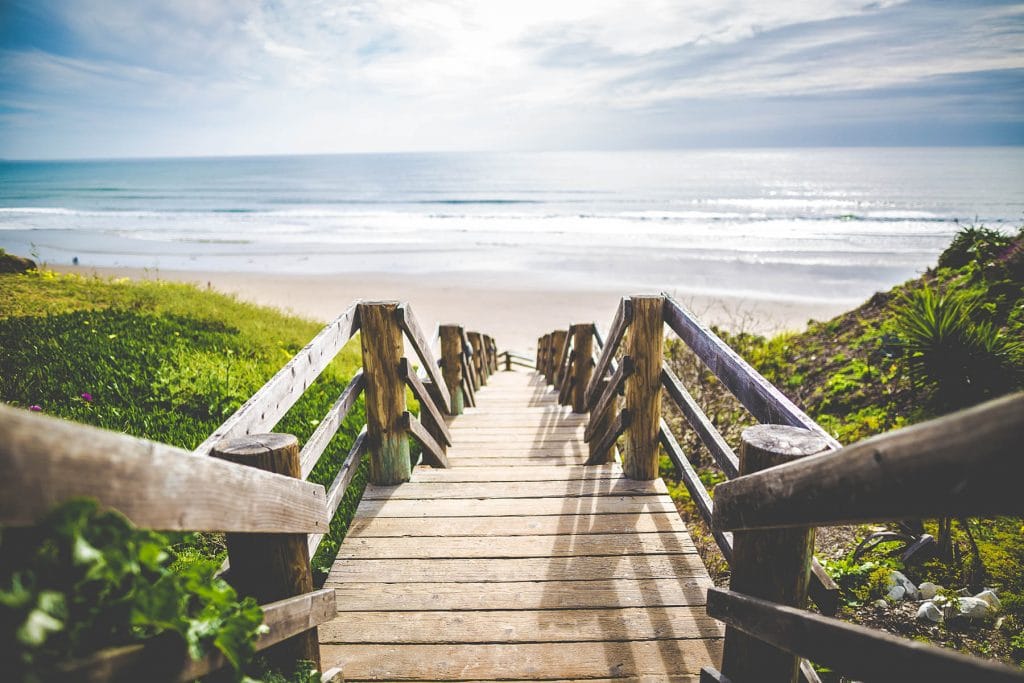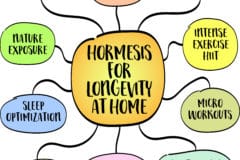Written by: John Munley
My daughter recently had her moving up ceremony during which she and her class celebrated “graduating” from elementary school and starting their middle school years in the fall. During the ceremony, the principal addressed the parents and students, quoting Robby Novak. Novak, who also goes by the name, Kid President, is a 13-year-old boy who, despite living with osteogenesis imperfecta, a rare genetic disorder that makes his bones extremely brittle, has built an online empire using his intelligence, charm, wit and boundless optimism to inspire others.
“Two roads diverged in the woods and I took the road less traveled and it hurt man. Really bad! Rocks! Thorns! And Glass! But what if there really were two paths. I want to be in the one that leads to Awesome!”
Was my daughter listening? I was. This advice is useful for people of any age, and it’s a message I hope my daughter heard, and heeds.
There have been many renditions of this theme, but they all have similar meaning: one of the greatest gifts we have in life is the right to choose. We all have our own set of assets and liabilities, but ultimately — no matter what our circumstances — it’s up to us to choose which trail in life we want to take. And though it’s true that no two of us are exactly alike, like Robby, I believe that regardless of what everyone else does we should choose the trail that leads to our “Awesome”.
Now what does this all have to do with good financial habits? Well, to follow your path to Awesome, I believe you need three things:
First, you need awareness about who you are, what is right for you, and where you want to go in life.
Next, you need to have the courage to follow your convictions.
Finally, you need a base of knowledge that lets you carry out your plan.
And here’s where I am going to build on Kid President’s advice with some advice of my own, hard-earned wisdom that I hope my daughters will heed along with Robby’s. Even if you’re not a teenager embarking on their first job, this is a good reminder about how to set priorities and blaze your own trail to awesome.
One of the most important things to remember about being Awesome is that it is not easy. Getting to your Awesome is an amazingly connected and complicated process because our own personal journey to awareness, courage and knowledge can’t be accomplished overnight. In my experience, we get to Awesome through hard work, determination, and sacrifice.
And though — first and foremost — the path to our Awesome is about personal fulfillment and contentment, one of the first things any of us can do to ensure success as we begin our adventure is to start practicing good financial habits, early. Because no matter what your Awesome looks and feels like, having a solid financial footing will make the rough patches easier and give us more options for celebrating our victories.
The three financial habits I wish I’d started earlier are not arcane, complicated concepts, but they do require awareness, courage and knowledge if we’re going to practice them successfully. They are: Pay yourself first, Don’t Just Park Your Money, and Avoid Building Excessive Credit Card Debt.
Pay yourself first. What does paying yourself first mean, and why?
You provided your time, service and expertise — maybe even your physical strength. You got paid.
Shouldn’t the first person to benefit from that paycheck be you?
Of course. Your time, expertise and service is valuable. Prioritizing yourself when you get paid shows an awareness of the value you bring to your work.
So, before you go out and buy that concert ticket or video game, set aside a portion of your pay for yourself — to save. The first spending that you do each month should be a deposit to your own saving account and thinking of personal savings as the first bill to be paid each month will help you acquire wealth over time.
There is a lot of pressure to ignore your own value and prioritize other’s wants. But it takes some courage to put yourself first, or even to say no, or not now. Fashion-Store wants you to buy the latest style of jeans. Friends want you to blow half your pay on hanging out with them at the beach.
But if you do pay yourself first, your money (and it IS your money) will be able grow faster (and $$$$) as you’re able to take advantage of compound growth. And the more money you save, the more you will have to use for your goals on the way to Awesome.
A good way to develop and practice the habit of paying yourself first is to open up both a checking and savings account. Have your paycheck deposited directly into your checking account and then, on every payday the first thing you should do is transfer the money you want to save from the checking account into your savings account. This is good practice because you’re training yourself to prioritize your own needs and goals over the latest consumer trend or impulsive desire for instant gratification.
How much, though? How much should you put towards savings from each paycheck? Here’s where knowledge plays its part in your newfound, good financial habit-making.
How much you should save can either be a specific dollar amount, or a percentage of your earnings, depending on how much you’re earning, your age and your goals. At a minimum, I recommend putting 10% aside for savings. As you earn more money and see what your spending habits are like, you can adjust the amount to better meet your goals. Of course, you have to have goals to do this.
What are your goals on the road to Awesome?
One quick example of how saving early can reap HUGE rewards along the road to awesome: Start investing $2,000 a year in average yield (7%) stocks at 17, and stop contributing at 30. By the time you’re 65, you’ll have $515,231 (all earned with only $28,000 of your hard-earned money!). Alternatively, if you wait until you’re 31 to start saving, you can invest $2,000 a year until your 65 — that’s a $70,000 total investment — and you’ll only realize $295,827 by the time you’re 65.
Bottom line, no matter how old you are, #1 Habit: Pay Yourself First. Start NOW!
Enjoying this topic? Don’t miss Part 2 – “Don’t Just Park Your Money”






